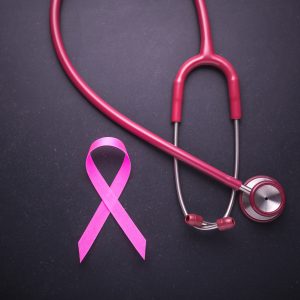You may be looking for breast cancer misdiagnosis compensation if an NHS or private clinic failed to identify and treat your breast cancer correctly. The emotional distress, pain and financial problems created by medical negligence like this is something you could be compensated for. This is because any UK registered medical professional that provides you with care has a responsibility to ensure that professional standards are met.
Our guide starts by explaining what a compensation calculator is and how using one with our help can get an approximate idea of what you might be owed. We then look at who might be eligible to start a claim like this. Common causes of cancer misdiagnosis are explored and we explain how medical negligence may impact patients. You’ll also find guidance on the evidence you can use to construct a compensation claim.
The final sections of our guide look at working with a solicitor. You might have worries about the cost of instructing legal representation. However, the solicitors on our panel could provide their services through a type of No Win No Fee contract which removes the obstacle of finding upfront money to launch your case.
Please read the following sections to learn more. Or you can discuss breast cancer misdiagnosis compensation claims with our friendly advisors by:
- Ringing us on 0800 408 7826
- Asking a question through the chat feature below.
- Or contacting us here to start a claim online.

Frequently Asked Questions
- Breast Cancer Misdiagnosis Compensation Calculator
- How Your Breast Cancer Compensation Amount Is Determined
- Can I Claim For Breast Cancer Misdiagnosis Compensation
- What Could Lead To A Misdiagnosis Of Breast Cancer?
- The Impacts Of Inaccurate Cancer Diagnosis
- How To Make A Claim For Breast Cancer Misdiagnosis Compensation
- Get Help From Compensation Calculator UK
- Breast Cancer Misdiagnosis FAQs
- Learn More
Breast Cancer Misdiagnosis Compensation Calculator
A medical negligence compensation calculator is a tool that can help you determine what is owed to you for the physical and psychological suffering caused by injury or harm. This link takes you to an example and we invite you to get in touch with our advisory team if you’d like any help using it.
Those involved in the medical neglience claims process will often refer to your healthcare records or the results of an independent medical assessment in conjunction with publications like the Judicial College Guidelines (JCG) to help calculate compensation. This book provides a list of compensation amounts based on past cases in England and Wales.
These compensation guidelines are never to be taken literally, as every claim will have unique factors that vary the ultimate award. However, we have put together a table below to illustrate what the Judicial College Guidelines say about harm relating to breast cancer. This is the same publication we have used to put together our compensation calculator. Please note that the initial entry is not from this publication:
Compensation Guidelines
| AREA OF HARM | SEVERITY | COMPENSATION GUIDELINES | NOTES |
|---|---|---|---|
| Multiple types of harm and Special Damages payment | Severe | Up to £1 million plus | More than one type of harm and Special Damages payment for lost income and private care costs. |
| Brain | (b) Moderately Severe | £267,340 going up to £344,150 | Harm that can stem from cancer spreading to the brain and causing a permanent disability and constant need for care. |
| (c) Moderate (i) | £183,190 going up to £267,340 | Harm that results in intellectual deficit, a change of personality and impact on ability to speak (or other senses). | |
| Lung Disease | (a) Premature death | £122,850 going up to £165,860 | Cases of lung disease in a younger person that progressively worsens and can lead to premature death. |
| Lung Disease | (b) Severe | £85,460 going up to £118,790 | Lung cancer that impairs both function and quality of life. |
| Bladder | (c) Serious impairment | £78,080 going up to £97,540 | With accompanying pain and incontinence |
| Bowel | (d) Severe | £54,420 going up to £85,100 | Lost function that requires colostomy use. |
| Digestive System | (i) Severe | £52,490 going up to £75,550 | Pain and continued discomfort after severe damage. |
| Psychological Harm | (b) Moderately Severe | £23,270 going up to £66,920 | A better prognosis than some cases but significant mental health problems for foreseeable future. |
| Scarring to other parts of the body | Noticeable | £9,560 going up to £27,740 | Several laceration scars or one single disfiguring scar. |
Because there are differing features to every type of claim for breast cancer misdiagnosis compensation, it is a good idea to speak to a professional to get a more accurate idea of what you might be owed. Call today to see if the solicitors on our panel could better determine compensation for you.
How Your Breast Cancer Compensation Amount Is Determined
There are two areas where breast cancer misdiagnosis compensation can be calculated, called general and special damages. Firstly, the physical pain and psychological suffering are assessed under general damages as per the table above. Also, long-term illness and permanent disabilities are valued here.
Your breast cancer misdiagnosis may have caused you significant money problems. Special damages is the head of loss under which financial harm can be assessed. If you have the documented evidence to show these losses and costs, you could claim them back. For example:
- Any wage slips and statements that show how your income has suffered.
- The cost of any private medical treatments you needed.
- Travel fares to essential appointments.
- Proof of amounts paid to others who cared for you at home.
- Receipts and invoices for medical equipment or changes needed in your home to cope after the misdiagnosis.
- Proof of costs for rehabilitation or counselling.
- Childcare expenses.
- Prescription charges.
If your breast cancer misdiagnosis compensation claim qualifies and you work with a solicitor from our panel, they can help you gather proof of out of pocket costs. They can also calculate general and special damages to reflect both current losses and any you might face in the future. Call to see if they can handle your claim.

Can I Claim For Breast Cancer Misdiagnosis Compensation
Yes, you might be eligible to claim breast cancer misdiagnosis compensation. However, as with all medical negligence cases, your claim will need to meet certain eligibility criteria.
To understand who can claim compensation for breast cancer misdiagnosis, its important to start with ‘duty of care’. All registered healthcare providers have an obligation to provide services that meet certain professional standards and avoid causing the patient unnecessary harm. This applies at every step of the way, from presenting with cancer symptoms to diagnosis to aftercare. With this in mind, you could have an eligible claim if you can show the following:
- You were owed a duty of care by the healthcare provider to meet minimum professional standards.
- They failed to meet those standards.
- As a result, you experienced avoidable or unnecessary harm.
If all three points are in place, medical negligence has occurred and you may have a claim for breast cancer misdiagnosis compensation. It takes just a moment to speak to our advisors now to see if your claim might qualify.
Am I Able To Claim If I Refused A Mammogram?
You do still have the right to start a compensation claim if you refused a mammogram, particularly if this was due to a doctor or surgeon failing to explain the importance of one. This could qualify as an example of negligent actions on the doctor’s part. We look at some other specific examples of breast cancer negligence below, but please connect with our advisory team now if you would like to discuss harm you suffered after refusing a mammogram.
Fatal Breast Cancer Misdiagnosis Claims
You could qualify to start a claim for a loved one who died because of a breast cancer misdiagnosis. Legislation called the Law Reform (Miscellaneous Provisions) Act 1934 (LRMPA) states that for the immediate 6 months after the death, the estate (only) can bring a claim forward for the pain and anguish suffered by the loved one before they died. Claims for their dependents can also be made by the estate at this time.
If no claim is made by the estate of the deceased within that period, under the Fatal Accidents Act 1976 (FAA) certain qualifying relatives may initiate one based on the impact the death has had on them and the wider family. This includes:
- A current wife, husband or civil partner.
- Any person who lived as such with the deceased at least 2 years prior to the death.
- Ascendants and descendants of the deceased and any person regarded as such because of prior marriage or partnership (such as a stepchild).
- A brother, sister, aunt, uncle or any of their children.
Other forms of compensation may apply to deal with funeral costs, loss of help in the home, any income relied upon and the impact of losing someone special. A solicitor can quantify these amounts. Also, a bereavement award can sometimes be made for £15,120, which is divided between certain applicants. Our sympathetic team of advisors can explain compensation claims for wrongful death caused by medical negligence with you now. Please call to discuss.
What Could Lead To A Misdiagnosis Of Breast Cancer?
Next we look at some common reasons that breast cancer can be misdiagnosed and form the grounds for a claim against the NHS or private healthcare provider. This is not an exhaustive list and your example may differ:
Dismissing The Patient’s Symptoms
A medical professional may overlook or ignore warning signs in a mammogram or other examination. Or fail to listen to the patient’s concerns. If the GP, doctor or specialist fails to take symptoms seriously and the breast cancer worsens, the patient could have a claim for the pain and suffering caused. For example, if the cancer is mistakenly diagnosed as adenomyosis the patient’s actual cancer may have time to spread and cause them to suffer much avoidable harm.
Failure To Refer The Patient
Medical professionals should try to operate as a unified network and know when to refer their patients to a suitable specialist for diagnosis. Given the seriousness, cancer referrals should happen promptly. So if a GP failed to refer their patient to a breast cancer specialist or surgical oncologist quickly (or at all) and the condition worsened, that patient could have grounds to seek compensation for the harm caused. The NHS has specific guidelines for cancer waiting times here.
Misinterpreting Test Results
Medical professionals need to be trained to certain standards so that they don’t misinterpret test results and carry out incorrect breast cancer treatments. A new or inexperienced doctor could fail to read vital signs in a blood test, scan or other procedure and this might delay or divert the right treatment. This can place the patient at risk of their condition going unnoticed or worsening.
Lack Of Follow Ups
In a similar way to the importance of referrals, medical professionals need to ensure that follow-up care and appointments are made for their patients. Breast cancer conditions can change rapidly. If a follow-up appointment is missed by the hospital or booked too far ahead in the future, the cancer can spread and have a grave impact on the patient’s quality of life or life expectancy.
Misdiagnosing Another Condition As Cancer
Medical negligence can also be diagnosing cancer when it is not present. This can cause the patient a significant degree of psychological stress and anxiety. As well as require them to undergo unnecessary treatments that are often invasive and gruelling, such as surgery, radiation therapy and chemotherapy. These treatments themselves can leave lasting harm and impact on a healthy patient.
Diagnosing A Tumour As Benign
Tumours can be either benign or malignant and often be mistaken for cysts or other harmless tissue masses in the breast of both men and women. Medical errors like this can have serious consequences, as malignant cancer can spread or metastasise to other parts of the body. It is vital that whatever blood tests, mammograms and biopsy samples are taken are then used to diagnose a patient correctly.
Whatever the basis of your breast cancer misdiagnosis, compensation may apply if the medical professionals involved failed to meet the required standards of care and you were harmed. You can call our advisory team for help right now on the number above. They could connect you with a solicitor from our panel to launch your medical negligence claim today.

The Impacts Of Inaccurate Cancer Diagnosis
The impacts of inaccurate cancer misdiagnosis can be devastating, ranging from prolonged painful procedures to a shortening of the patient’s life expectancy. Some specific effects can be as follows:
- Stress and significant anxiety for the patient and their family.
- The need for more aggressive cancer treatment that would not have been required had the breast cancer been correctly diagnosed earlier.
- When inaccurate diagnosis delays treatment and allows the cancer to spread, posing potential life-altering or fatal consequences for the patient, their body and their self-esteem.
- The scars and emotional trauma of surgery to the breast(s).
These issues could be the basis of a valid breast cancer misdiagnosis compensation claim. If you suffered avoidable harm because of an inaccurate cancer diagnosis, speak to our advisory team now.
How To Make A Claim For Breast Cancer Misdiagnosis Compensation
The best way to build a strong claim for compensation is to gather evidence that demonstrates the misdiagnosis and the harm it caused you. The following is useful:
- Copies of medical findings such as blood tests, mammograms, ultrasound tests, biopsy results and x-rays.
- Copies of relevant diagnoses and treatment from specialists.
- Any correspondence with the NHS or a private clinic about your treatment.
- Proof of financial harm related to the breast cancer misdiagnosis.
- Photos of the harm.
- Proof of medications you needed to take to deal with the consequences of misdiagnosis.
Time Limits In Which To Start Your Claim
The Limitation Act 1980 lays out a 3 year time limit for medical negligence claims to start. This can start from two different points:
- The date of when negligent actions caused you harm.
- The date when it was reasonable to realise that negligent actions lead to harm. This is called the date of knowledge.
In addition to this, time frames can vary for two groups of claimants. A minor can’t start a medical negligence claim themselves until they turn 18. They are allocated 3 years to start their claim from this birthday. A person without sufficient mental capacity is not bound by a time limit. If capacity returns, they have 3 years to initiate their claim from that date.
Alternatively, a claim can start straight away if a litigation friend is appointed. Oftentimes, this is a family member or other involved party who carries out the claim responsibilities on the person’s behalf. If you use this option, no future claim can be made. If you’d like to discuss litigation friends, time limits or any aspect of claims for breast cancer misdiagnosis compensation, get in touch.

Get Help From Compensation Calculator UK
Our panel of solicitors are experts at handling medical negligence claims and could help you. What’s more, they can provide excellent legal representation in a way that doesn’t add to your financial burden right now. They offer services via a type of No Win No Fee contract called a Conditional Fee Agreement (CFA). This means there are no immediate solicitor’s fees to pay to initiate the claim or any such fees as the claim moves forward.
If the claim fails, solicitors working this way require no payment for their completed services. Claims that win mean that a success fee needs to be paid. This is a small percentage of the compensation, which is both agreed in advance and kept under a legal cap. This means the person claiming after a breast cancer misdiagnosis will get to keep virtually all of their compensation.
With their expert understanding of how to calculate damages and a sharp eye on your best interests, it makes sense to see if our panel could take up your breast cancer compensation claim.
Contact Our Panel Of Advisors
- Ring us on 0800 408 7826 to see how much compensation you could be owed after an incorrect breast cancer misdiagnosis.
- Ask a question through the chat feature below.
- Or contact us here to start a breast cancer negligence claim online.
Breast Cancer Misdiagnosis FAQs
Next, we cover some breast cancer misdiagnosis FAQs but please call if you have either a general or specific question about the medical negligence claims process:
What Are The Common Symptoms Of Breast Cancer?
The most common symptoms of breast cancer can include:
- A new lump or mass in the breast or armpit.
- Changes to the skin surface and size or shape of the nipple.
- Pain and discharge from the nipple.
- General changes in breast shape.
How Should Breast Cancer Be Tested For?
Typically, testing for breast cancer involves a physical examination, blood tests, imaging procedures such as mammograms (breast x-rays), ultrasound, MRI tests and the analysis of tissue samples (biopsies).
What Treatments Are Available For Breast Cancer?
There is an array of treatments to fight breast cancer at any stage of the illness. The most commonly used options are as follows:
- Surgery
- Chemotherapy
- Radiotherapy
- Hormonal and targeted therapies
- Immunotherapy treatments.
What Can Breast Cancer Be Mistaken For?
Breast cancer can be mistaken for these other medical conditions:
- Cysts or other fluid-filled sacs.
- Fibroadenomas which are harmless tumours made of gland and tissue fibre.
- Fat necrosis (dead fat cells that can form after a surgery).
- Mastitis – a type of breast infection that can cause pain and swelling.
- Radial scars, which are a type of fibrosis that resembles breast cancer on imaging.
- Phyllodes tumours – another form of benign breast mass.
- Intraductal papilloma – these are small growths in the milk ducts of women’s breasts that may give discharge.
- Fibrosis can also feel lumpy and raise a concern, as can sclerosing adenosis, which shows up on scans in a similar way to breast cancer. Abscesses and hormonal changes may also be mistaken for cancer.
Can I Still Claim If I’m Currently Receiving Treatment For Breast Cancer?
You can claim breast cancer misdiagnosis compensation while still receiving treatment. If the treatment is to correct an initial medical error, this is factored into the compensation. If the exact course of your treatment is yet to be determined, it may take a little longer to value your breast cancer claim. Either way, in the hands of a skilled solicitor from our panel, they will ensure that your claim starts promptly and fully calculates the compensation owed to you. They can also help secure an interim payment to help while you wait for a final settlement.
Learn More
In addition to this resource about breast cancer misdiagnosis compensation, you can use the links below to access more support and information:
- This article discusses thyroid cancer misdiagnosis claims.
- Here we look at lung cancer claims for compensation.
- Also, read more about when cancer is misdiagnosed as fibromyalgia.
External resources to help:
- This NHS link provides further reading on symptoms of breast cancer in women.
- Here is information from GOV.UK about breast cancer screening services.
- Also, read useful details on breast cancer from Cancer Research.
In conclusion, thank you for reading our guide on breast cancer misdiagnosis compensation claims. Our friendly advisors are available right now to offer further guidance about claiming for medical negligence.

